Announcing the winners of the 2025 Tools Competition!
2025 Tools Competition
Phase II of the 2025 Tools Competition is now closed. Stay tuned for:
Winner Announcement: Summer 2025
Next Cycle Launching: Fall 2025
2025 Tools Competition

*Note: This track is open to US competitors only.
Tools that expand access to quality post-secondary learning and broaden connections to career success. This track addresses barriers to social and career mobility, particularly for underserved learners, by increasing the effectiveness and relevance of higher education, supporting learners in bridging their learning and career goals, expanding innovative technology-enabled learning models, and strengthening the workforce.
Competitors may propose solutions that, for example:
Competitive proposals will demonstrate a commitment to learning engineering. Tools should facilitate continuous data collection in order to drive timely and effective interventions, and support research insights on factors affecting outcomes for diverse learner populations and learning conditions.
Tools should target learners, educators, or administrators at the post-secondary level as the primary user group. This may include higher education or workforce development.
Competitors in the United States are eligible to submit. We welcome proposals from teams or individuals from all backgrounds, including edtech companies, researchers/universities, educators, or students (undergraduate or graduate).
Based on the most pressing needs in learning and learning technologies, a subset of prizes will be reserved for for proposals that:
While the Tools Competition has different tracks and priorities from year to year, the past winning tools below are examples of what could be competitive.
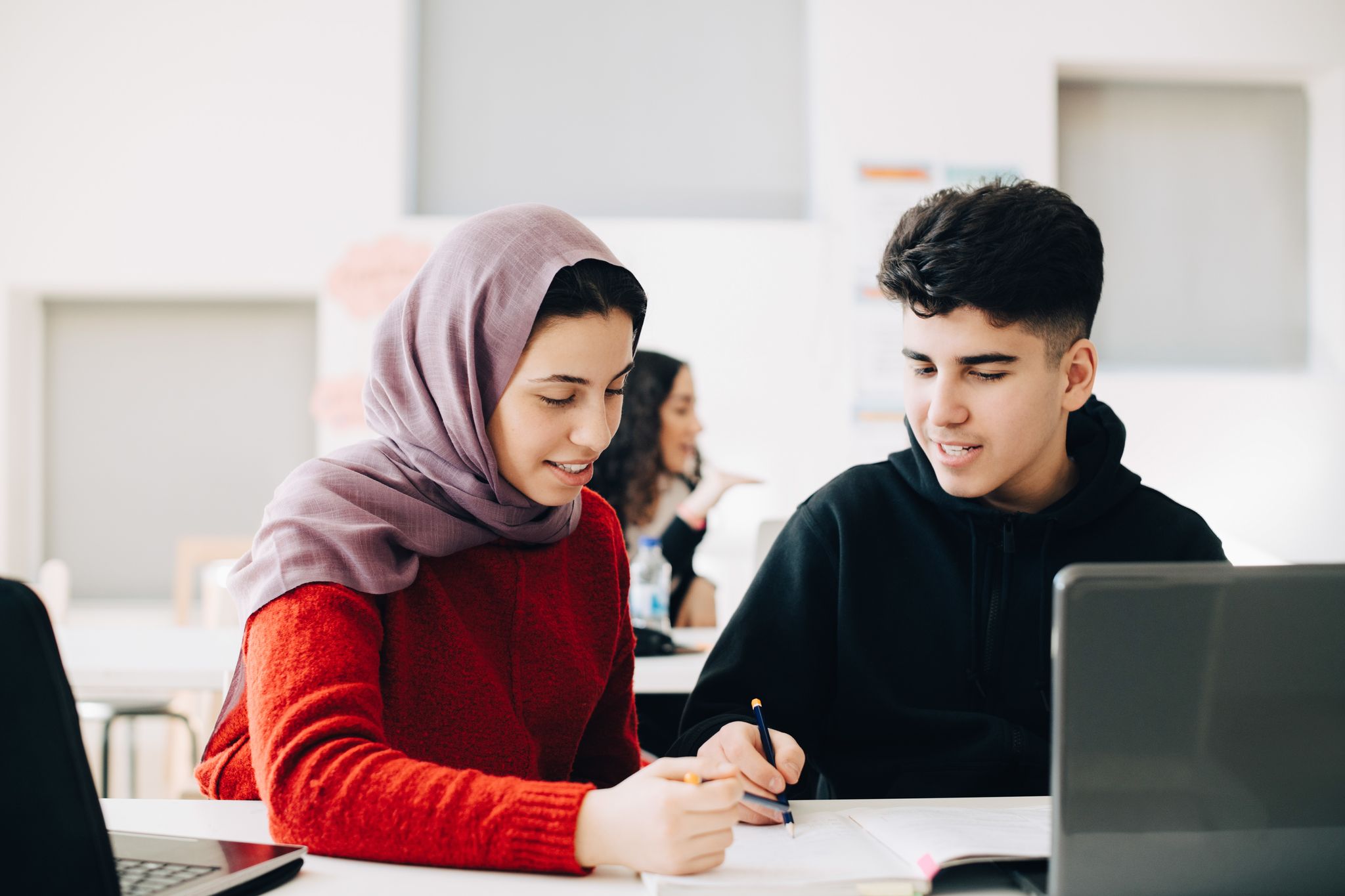
Tools Competition judges play a critical role in selecting Tools Competition Winners and bring expertise spanning philanthropy, research, industry, and education. Judges will hear virtual pitches from finalists in Phase III of the competition.

VP of Sustainable Growth & District Development
Calbright College
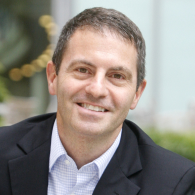
Senior Associate Dean for Open Learning
Massachusetts Institute of Technology
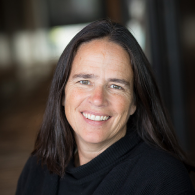
Managing Director
Schultz Family Foundation

Sr Director of Innovation and AI for Impact, Philanthropy
Salesforce

Deputy Director, Postsecondary Success
Gates Foundation

VP, Global Education and Workforce Development
IBM

Assistant Professor
University of Minnesota
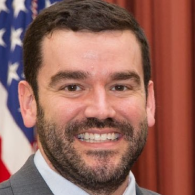
Managing Director and Head of the PolicyCenter
JPMorganChase
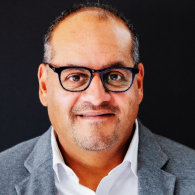
CEO/Founder
AQL Labs

Executive Director, AI Acceleration
ASU Enterprise Technology

VP Technology Innovation
Axim Collaborative

Senior Director, Innovation
ideas42

Senior Director
ECMC Foundation
When submitting a proposal, competitors must select the relevant prize level based on the size and scale of their tool. Proposals at all prize levels should detail how the proposed tool will solve a defined problem, rather than focus on past achievements.
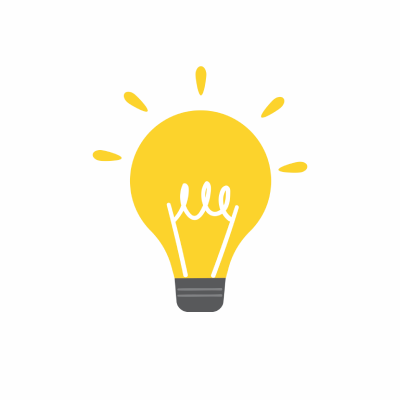
These prizes are designed for early-stage competitors.

These prizes are designed for competitors with a tool with some users and scale.
Learning Engineering requirement : Teams must include a plan to support learning science research in their Phase II proposal. Learn More.
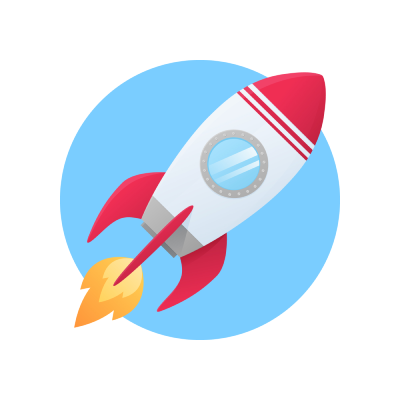
These prizes are designed for advanced competitors with an established tool.
Learning Engineering requirement : Team must include a plan to support learning science research in their Phase II proposal. Learn More.
Novelty of the tool
and technology
Potential impact and likelihood to improve learning
Attention to equity to support learning of historically marginalized populations
Demand from learners
and educators
Ability to support learning engineering
Ability to scale to additional users and/or domains
The Tools Competition funds edtech tools and technologies that support learning outcomes and can contribute to learning science research.
Eligible tools have the potential to generate novel learning data that researchers can study to better understand learning at scale. This may include an app, software, algorithm, dataset, or other digital technology that facilitates or supports continuous data collection and has the potential to scale at minimal cost.
Please note that this definition is not exhaustive. As technology continues to develop and innovations are created globally, other tool concepts may also be competitive.
Not sure your tool is eligible? Explore winning tools from previous years.
Competitors submit an abstract describing the concept for their tool and responding to the evaluation criteria.
Competitors develop a proposal and budget detailing their tool and its technology and responding in detail to the evaluation criteria. Rubrics will be posted when Phase II opens.
Finalists pitch before a panel of expert judges.
Winners are announced and receive the first installment of their prize.
Winners track impact metrics in the year following their prize and receive guidance to set up internal evaluation processes.
Winners present on their progress to date and receive feedback from other winners and leaders in the field.


For teams that will prepare and release datasets that can make innovation and research related to education less expensive and more inclusive.

VP of Sustainable Growth & District Development
Calbright College
Marisa has spent her career focused on innovation in education, with a focus on improving outcomes for students and families nationwide. She is excited to be back home in California supporting increased economic opportunity for adult learners across the state. Marisa was most recently Deputy Director for K-12 Education at the Walton Family Foundation. Prior to joining the foundation, she served as Chief of Staff and Senior Advisor in the Office of Innovation and Improvement at the U.S. Department of Education. Previously, Marisa was a Director at the New York City Department of Education, a Leadership Fellow at NewSchools Venture Fund, and a founding Education Pioneers Fellow at Aspire Public Schools, along with past work in organizational development and management consulting. She holds a B.A. in Cultural Anthropology from the University of California, Berkeley, and an M.B.A. from Harvard Business School.

Senior Associate Dean for Open Learning
Massachusetts Institute of Technology
Christopher Capozzola is Elting E. Morison Professor of History and Senior Associate Dean for Open Learning at the Massachusetts Institute of Technology. He oversees open education offerings including OpenCourseWare, MITx, and MicroMasters, as well as the Digital Credentials Consortium, MIT Digital Learning Lab, Digital Learning in Residential Education, and MIT Video Productions.
As part of his work with MIT instructors, he supports the inclusion of educational technology innovations that advance teaching and learning at MIT and around the world. He serves on the Faculty Advisory Board of MIT Solve, and convenes MIT’s Generative AI Faculty Learning Community.
The author of two books, Capozzola has taught U.S. history at MIT for more than twenty years and in 2018 was named a MacVicar Faculty Fellow, MIT’s highest honor for undergraduate teaching.

Managing Director
Schultz Family Foundation
Marie Groark leads grantmaking at the Schultz Family Foundation. Prior to joining the Foundation, Marie was at Paramount, where she founded and led Get Schooled, a nonprofit organization that supports young people as they navigate education, the job market, or both. Guided by Marie’s leadership, Get Schooled was named a Most Innovative Company by Fast Company for its use of gamification to drive youth engagement and improve student outcomes. Marie was previously a Senior Program Officer with the Bill & Melinda Gates Foundation, and also advised public, non-profit, and private sector clients as a management consultant with PwC Consulting. She began her career as a social studies teacher at John F. Kennedy High School in the Bronx.
Marie holds a BA from New York University, an MA from Teacher’s College at Columbia University, and an MPP from Harvard University’s Kennedy School of Government. She lives in Seattle with her husband, three children, and Australian Shepherd, Teddy. Marie is actively involved in her children’s schools and her neighborhood Scout committee, and volunteers as a VITA tax preparer with United Way King County during tax season.

Sr Director of Innovation and AI for Impact, Philanthropy
Salesforce
Amy Guterman is a design and innovation leader with over 15 years of experience at the intersection of design, technology, and social good. As the Senior Director of Innovation, Philanthropy at Salesforce, she leads the Salesforce Accelerator – AI for Impact, a pioneering initiative that provides funding, technology, and technical support to advance AI solutions addressing education and climate justice. Previously, Amy launched Salesforce.org Impact Labs to de-risk innovation for nonprofits and schools by co-designing impactful, open-source technology solutions.
With a strong foundation in human-centered design and innovation strategy, Amy has spearheaded initiatives that empower organizations to take risks and drive meaningful change. She has led projects ranging from designing global health information systems to building technology to support financial aid applications. Amy’s work has been recognized by the Bill & Melinda Gates Foundation and The White House and featured in leading publications such as Forbes, Fast Company, and Wired.
She holds a Master of Design Methods with a focus on innovation strategy from the IIT Institute of Design and a BFA in Visual Communications from Washington University in St. Louis. As a speaker and educator, Amy inspires audiences worldwide on the power of design and technology to create lasting social impact.

Deputy Director, Postsecondary Success
Gates Foundation
Mei-Yen is the deputy director for digital holistic student supports as a part of the Bill & Melinda Gates Foundation’s Postsecondary Success strategy. Mei-Yen leads the team advancing the availability and adoption of equity-centered digital holistic student supports tools that leverage the power human interaction supported by data and technology to ensure that more students, particularly Black, Latino, and Indigenous students, and students experiencing poverty thrive in their postsecondary journey and achieve credentials that increase socioeconomic mobility.

VP, Global Education and Workforce Development
IBM
Lydia Logan leads IBM’s community and university skilling initiatives that create more inclusive and effective schools and workforces. Her programs help fulfill IBM’s pledge to skill 30 million people worldwide by 2030, and to skill two-million learners with AI expertise through 2026 — particularly those from historically under-resourced, under-served, and underrepresented communities.
For this role, she applies her decades of leadership and programmatic expertise in the realms of philanthropy, education, public policy, and economic development. These experiences inform Ms. Logan’s strategic development and execution of acclaimed global programs such as IBM SkillsBuild.
Ms. Logan also develops and manages strategic global partnerships with IBM’s clients, non-profit organizations, government, and content and curriculum developers that relate to education and career readiness. IBM’s investments in education and skills are part of the company’s efforts to mobilize technology and employee talent to address some of society’s biggest challenges worldwide, including environmental sustainability.
Prior to IBM, Ms. Logan led the Verizon Innovative Learning Schools initiative that provides technology and training to under-resourced public schools. She served as senior policy director at the Eli and Edythe Broad Foundation, where she drove education policy and philanthropic investments to improve the management, quality, and transparency of public schools. Ms. Logan also served as the VP of programs for the Kimsey Foundation, to improve educational outcomes at under-resourced public schools, and helped low-income families bridge the digital divide.
Ms. Logan holds a B.A. from the University of Pennsylvania.


Managing Director and Head of the PolicyCenter
JPMorganChase
Carlos Monje Jr. is Head of JP Morgan Chase’s PolicyCenter, which develops and advances sustainable, evidence-based policy solutions to drive inclusive economic growth in the U.S. and around the world.
Monje most recently served as Under Secretary of Transportation Policy at the U.S. Department of Transportation. The third-highest-ranking official in the department, Monje supervised policy, research, innovative finance, international affairs and project delivery. He led the team that helped pass the Bipartisan Infrastructure Law (BIL), a $650 billion infusion into our nation’s infrastructure system. He formed and led the implementation team that has funded 45,000 projects around the country and was recognized by the Partnership for Public Service with a 2023 Service to America Award (colloquially known as the Sammies, or the Oscars of federal service).
Monje led process for the Biden-Harris presidential transition where he recruited, trained and deployed more than 400 volunteers to do a top-to-bottom review of the federal government amidst a pandemic and contested election.
Monje served as Twitter’s Director of Policy and Philanthropy for the US and Canada at a time of unprecedented scrutiny for the tech sector.
Monje was previously Special Assistant to the President and Chief of Staff of the White House Domestic Policy Council where he helped oversee all aspects of policy, message and event development across a wide spectrum of domestic policy issues. He also was a founding staffer of the White House Office of Social Innovation, where he oversaw efforts to pass and implement the Edward M. Kennedy Serve America Act and promoted cross-sector partnerships.

CEO/Founder
Before founding AQL Labs, a social venture focused on building and scaling transformative digital innovations that amplify the success of adult learners and the postsecondary institutions that best serve them, he was Deputy Director of Innovation and Technology Enabled Solutions in the Postsecondary Success strategy at the Gates Foundation, the world’s largest global philanthropy. During his 12-year tenure, he developed, managed, and directed strategy, investments, and a team of grantmakers overseeing multiple portfolios, including digital and adaptive learning, HBCU digital infrastructure, developmental education reform, and student advising and support systems. Rahim’s leadership and investments led to numerous advancements in innovation, R&D, and evidence-based reforms across multiple domains in higher education, including adaptive learning, scaling developmental education reforms, improving faculty professional development in evidence-based instructional practices like active learning, and seeding affordable, high-quality, national scale postsecondary models. Prior, Rahim played a crucial role in scaling JSTOR, Aluka, and ITHAKA globally – three mission-driven organizations founded by the Mellon Foundation. Today, these digital platforms serve hundreds of millions of learners and thousands of educational institutions around the globe.
Rahim serves as Vice-Chair of the board of the Seattle Colleges Foundation, director of the venture-backed startup Lumen Learning, and director of both Climb Together and ATAIN boards. Rahim was also a finalist judge for the U.S. Dept. of Education’s Future Finder competition. Rahim is a first-generation college graduate who completed his postsecondary education at Boston University, the University of Chicago, the Institute of Ismaili Studies, and the University of Cambridge. Rahim is based in Seattle.

Executive Director, AI Acceleration
ASU Enterprise Technology
Dr. Elizabeth Reilley is the Executive Director, AI Acceleration, with Enterprise Technology at Arizona State University. Previously at ASU, she worked in the area of Data and Analysis also within Enterprise Technology. Elizabeth has 15 years of experience in higher education working in Academic Affairs, Information Technology, and Strategy and Policy.
She has a PhD in Educational Research, Measurement and Evaluation and an MBA from the University of North Carolina at Greensboro and a BA in Philosophy and Community and Justice Studies from Guilford College.

VP Technology Innovation
Axim Collaborative
Philipp Schmidt is CTO of Axim Collaborative, a non-profit organization founded by MIT and Harvard to address systemic equity gaps in higher-education. He is also a research scientist at MIT and advisor for digital credentials. Prior to joining Axim, Philipp was the Director of Digital Learning at the MIT Media Lab. He has extensive experience developing technology-enabled programs that increase opportunities for learning and education. Philipp founded Peer 2 Peer University (P2PU), a non-profit that provides wrap-around support for online courses through a network of public libraries, serves on the board of College Unbound, a college designed from the ground up to serve adult students, and was a founding board member of the OpenCourseWare Consortium. He co-authored the Cape Town Open Education Declaration and has developed a number of open standards for digital academic credentials including Mozilla Open Badges. He has received Shuttleworth and Ashoka fellowships, and came to MIT as a Media Lab Director’s fellow. Before moving to the US, he lived and worked in South Africa. He holds a CS degree from FH Furtwangen in Germany and an MBA from MIT.

Senior Director, Innovation
ideas42
Tom Tasche is an Associate Managing Director at ideas42, where he leads a portfolio of projects focused on leveraging behavioral insights to improve outcomes for adult learners. Working collaboratively with college leadership and academic experts, Tom leads teams through a hypothesis-driven design process to develop, test, and scale new approaches that can sustainably boost persistence and completion in higher education. In his time at ideas42, he has also led work in public health and civic engagement.
Prior to joining ideas42, Tom worked in development finance and international economics as a policy advisor at the European Bank for Reconstruction and Development (EBRD) and a desk economist at the U.S. Treasury Department. He also has experience advising startup, nonprofit, and philanthropic leaders on strategy and innovation.
Tom received his B.A. and M.P.A. from Princeton University as a fellow in the Scholars in the Nation’s Service Initiative at the School of Public and International Affairs, where he focused on behavioral economics and impact evaluation.

Senior Director
Jennifer Zeisler oversees ECMC Foundation’s strategically responsive grants and emerging initiatives portfolio, which supports project-based and reform-oriented efforts aimed at advancing systemic change to improve postsecondary persistence and degree completion for students from underserved backgrounds. Before joining ECMC Foundation, she worked at the Clinton Global Initiative where she helped leaders, including university students, government officials, foundation and business executives, university administrators, and nonprofit leaders, design new, specific and measurable projects. Prior to the Clinton Global Initiative, she spent five years working with the United States Peace Corps as both an overseas volunteer and United States-based recruiter, roles that expanded her experience in strategic planning, program development, and monitoring and evaluation. Other previous employers include a small arts-based nonprofit organization, a public hospital, a regional association of grantmakers, community and family foundations, and higher education institutions.
She holds a master of arts in philanthropic studies and a master of arts in public administration in nonprofit management from Indiana University, and a bachelor of science in communications from Old Dominion University. She currently serves as a member of the Indiana University Lilly Family School of Philanthropy Board of Visitors, the president of the Old Dominion University Greater Los Angeles Alumni Chapter and a member of the Workforce Matters Funders Network Steering Committee.